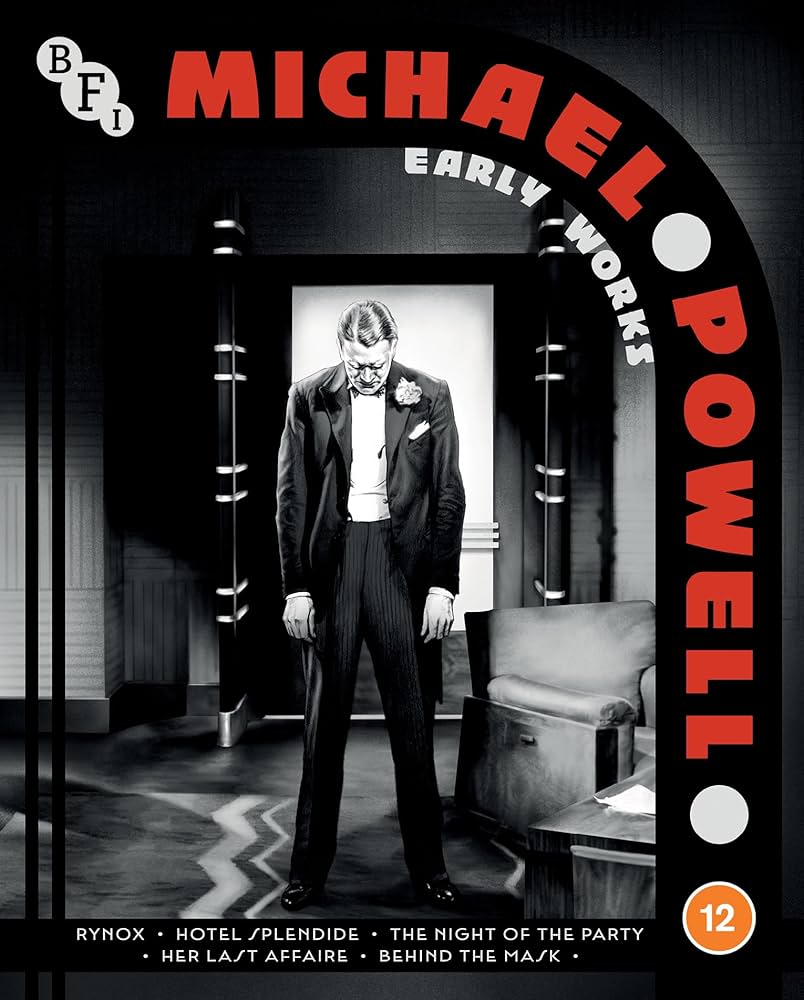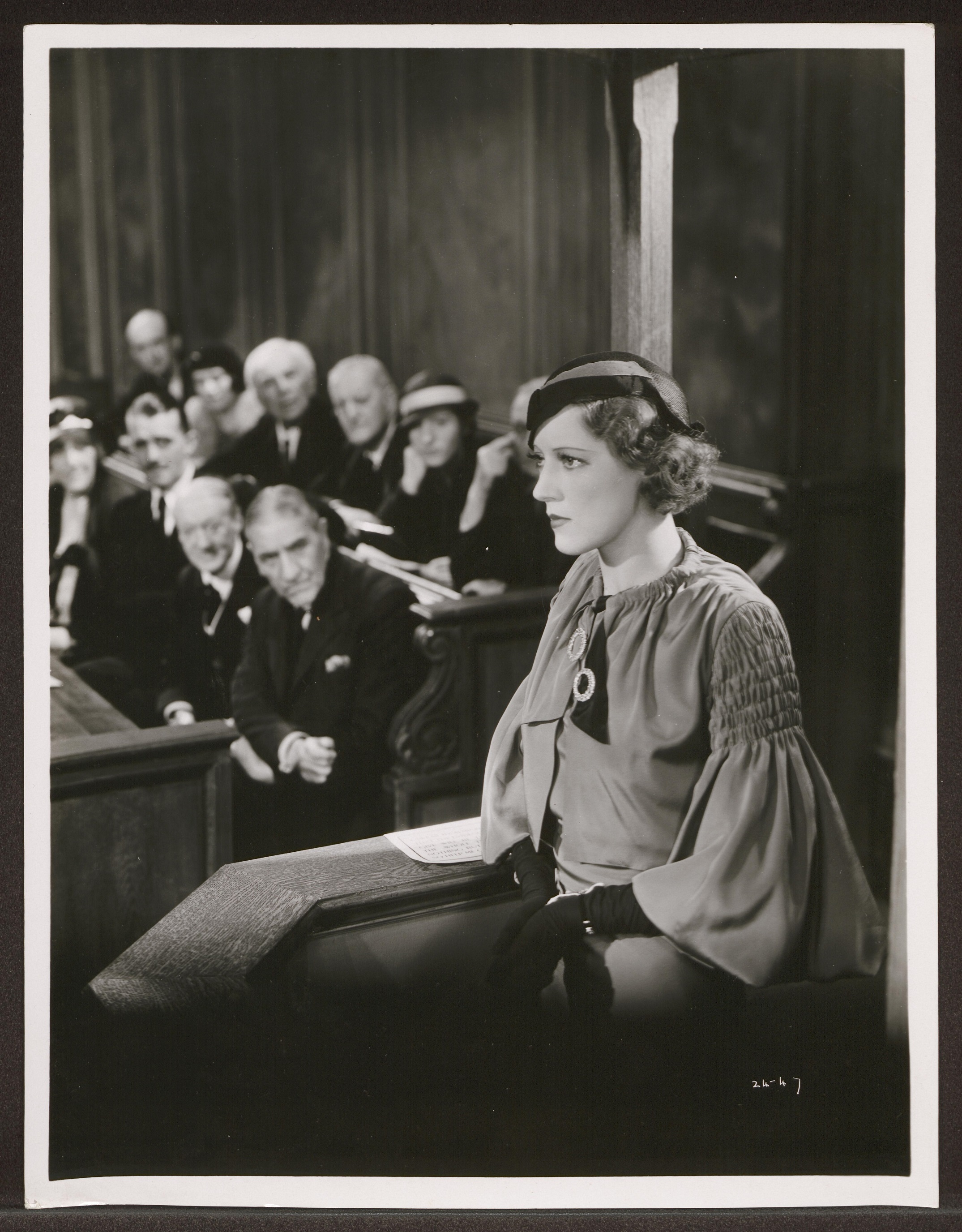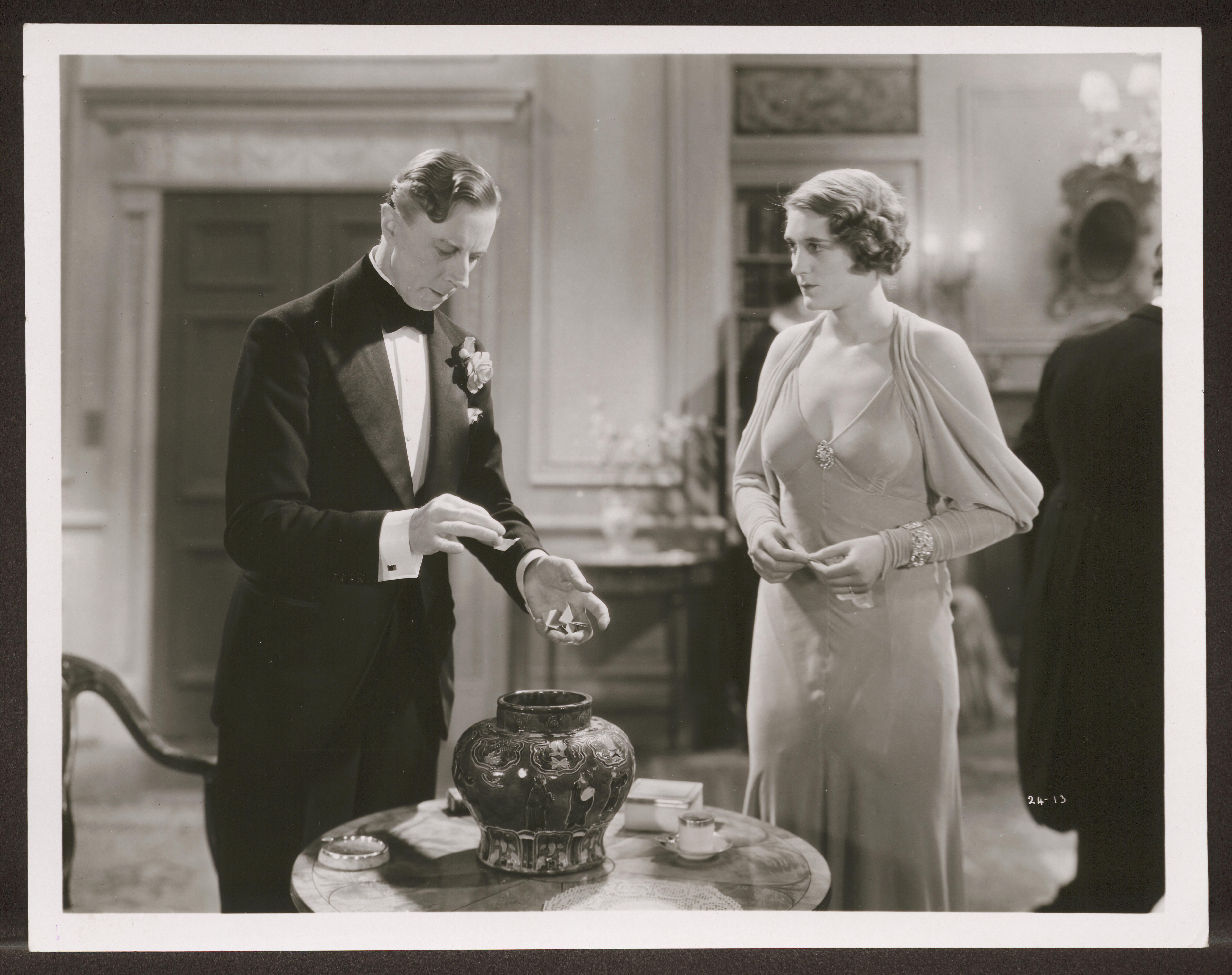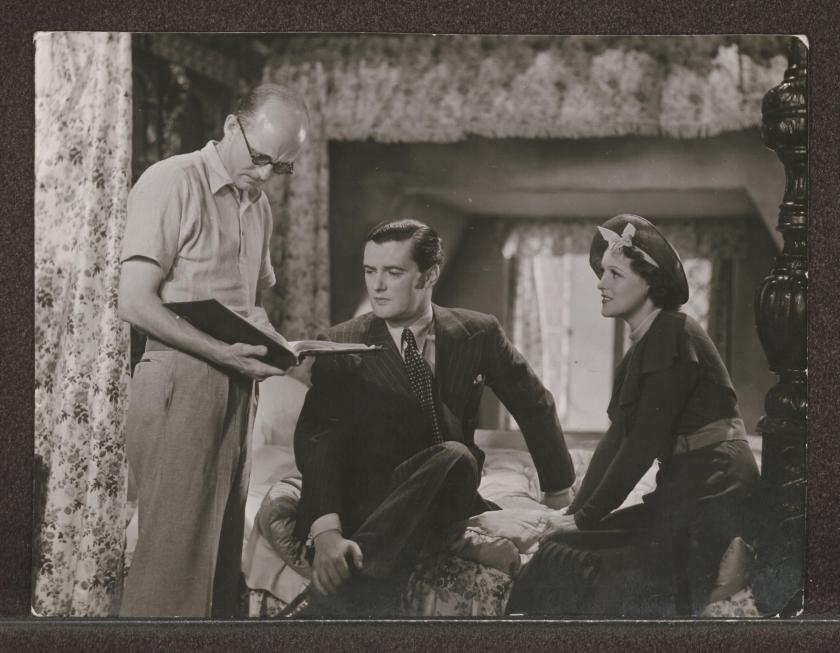The missing element is magic, the swooning sense of the romantic, spiritual and supernal which Michael Powell’s partnership with Emeric Pressburger found in the British and especially English soul, sharpened by Hungarian Pressburger’s fascinated love for his exile’s home.
These five minor, pre-Archers films don’t fairly define Powell’s role – his elemental, important The Edge of the World (1937) also predates British cinema’s equivalent of Lennon meeting McCartney. Mostly made as subsidised, cheap native “quota quickies”, they show an apprentice director’s vigorous cinematic fluency and abiding taste for modernity, eccentric bit-parts and lithe, sharply intelligent young actresses, belying his generally low budgets, cramped sets and hoary plots.
 Powell’s earliest surviving feature, Rynox (1932), sees the repulsive Boswell Marsh, whose monstrous visage and cloak signify Victorian, Hyde-like villainy, conduct a fatal campaign against rubber magnate Benedik (Stewart Rome). Boswell and Benedik are finally revealed to be the same man, conspiring to bequeath insurance money to his debt-ridden company. Benedik hurls Boswell’s wig and very existence into the fire in flashback, steam rising diabolically from this Mabuse-esque trickster’s trappings. Powell meanwhile builds a deceptively big world of art deco offices overlooking a painted, Manhattan-style skyline. The camera pans in to observe the haunted Benedik through a window as if high above the streets, and mirrors and windows prove a Powell motif at this time, cheaply signifying that people can be more than they seem.
Powell’s earliest surviving feature, Rynox (1932), sees the repulsive Boswell Marsh, whose monstrous visage and cloak signify Victorian, Hyde-like villainy, conduct a fatal campaign against rubber magnate Benedik (Stewart Rome). Boswell and Benedik are finally revealed to be the same man, conspiring to bequeath insurance money to his debt-ridden company. Benedik hurls Boswell’s wig and very existence into the fire in flashback, steam rising diabolically from this Mabuse-esque trickster’s trappings. Powell meanwhile builds a deceptively big world of art deco offices overlooking a painted, Manhattan-style skyline. The camera pans in to observe the haunted Benedik through a window as if high above the streets, and mirrors and windows prove a Powell motif at this time, cheaply signifying that people can be more than they seem.
The Observer’s influential critic CA Lejeune reviewed Rynox alongside Hitchcock’s Rich and Strange, and announced a major talent forged by necessity: “Powell’s Rynox shows what a good movie brain can do within the strictest limits of economy. This is the sort of workman we need for the new British cinema, this is the sort of pressure under which a real talent is shot red-hot into the world.” Prolific crime writer Philip MacDonald provided the story for Rynox and Hotel Splendide (1932), but the latter’s threadbare yarn of jailbirds seeking loot buried under a subsequently built hotel is a comic vehicle for Powell regular Jerry Verno, pictured above, as a typically British overreaching buffoon à la Hancock, with added craven canniness. Impetuously quitting his clerk’s job when he inherits the titular establishment, Sybil Grove’s game young manager helps him inspect the facilities, his optimistic cries of “Beautiful view!” finally defeated as Powell fades out on a toilet chain. The still funny, sprightly business can be filed a couple of ranks behind Will Hay, but seek future Archers clues in vain.
Prolific crime writer Philip MacDonald provided the story for Rynox and Hotel Splendide (1932), but the latter’s threadbare yarn of jailbirds seeking loot buried under a subsequently built hotel is a comic vehicle for Powell regular Jerry Verno, pictured above, as a typically British overreaching buffoon à la Hancock, with added craven canniness. Impetuously quitting his clerk’s job when he inherits the titular establishment, Sybil Grove’s game young manager helps him inspect the facilities, his optimistic cries of “Beautiful view!” finally defeated as Powell fades out on a toilet chain. The still funny, sprightly business can be filed a couple of ranks behind Will Hay, but seek future Archers clues in vain.
 Powell dismissed his 16th feature, The Night of the Party (1934), as compromised “junk”. Based on a play and mostly confined to the Mayfair flat where press baron Studholme (Malcolm Keene) is murdered by a party guest, Powell undervalued a rattling, all-star yarn, which saw him graduate to Michael Balcon’s better resourced Gaumont-British. Its relishable cast is led by stalwart Leslie Banks as Inspector Holland, with Viola Keats, 22, pictured right, as his daughter; she quit cinema soon after her two roles in this release, which revives her sharply beautiful, worldly, witty strength. Powell and his team favour lean cuts and gorgeous, characterful costumes, and light Studholme’s window with a neon boast, “Studholme Newspapers Have World’s Largest Circulation”, which pulses on a clandestine lovers' meeting like a shutter falling. Ernest Thesiger’s grandly grotesque, waspish author, pictured below, immediately precedes his film-stealing Dr Pretorius in The Bride of Frankenstein (1935), and his climactic courtroom rampage roars into orbit, even as Powell fills the gallery with bantering male and female reporters, as if a screwball comedy is about to break out.
Powell dismissed his 16th feature, The Night of the Party (1934), as compromised “junk”. Based on a play and mostly confined to the Mayfair flat where press baron Studholme (Malcolm Keene) is murdered by a party guest, Powell undervalued a rattling, all-star yarn, which saw him graduate to Michael Balcon’s better resourced Gaumont-British. Its relishable cast is led by stalwart Leslie Banks as Inspector Holland, with Viola Keats, 22, pictured right, as his daughter; she quit cinema soon after her two roles in this release, which revives her sharply beautiful, worldly, witty strength. Powell and his team favour lean cuts and gorgeous, characterful costumes, and light Studholme’s window with a neon boast, “Studholme Newspapers Have World’s Largest Circulation”, which pulses on a clandestine lovers' meeting like a shutter falling. Ernest Thesiger’s grandly grotesque, waspish author, pictured below, immediately precedes his film-stealing Dr Pretorius in The Bride of Frankenstein (1935), and his climactic courtroom rampage roars into orbit, even as Powell fills the gallery with bantering male and female reporters, as if a screwball comedy is about to break out.
Keats co-stars in Her Last Affaire (1935), based on a play and largely set in landlord John Laurie’s New Forest inn, where politician’s wife Lady Avril (Keats) intends an affair with her husband’s aide, Alan (Hugh Williams). Powell wrestles with a plot which supposedly asks us to support priggish Alan’s manipulation of breezily sexual, urbane Avril, but surface, misogynist Thirties mores pale beside Keats’ modernity, Googie Withers’ tart country barmaid, Laurie’s practised haughty puritan, a ruling class garden party and the bucolic inn. “Polite society dramas about non-existent people,” Powell moaned, but his ingenious professionalism and cast nearly make it sing. Early Works also gives a first official release to Behind the Mask, the mangled US cut of the long lost The Man Behind the Mask (1936), in this version a serial-style caper with a science-fiction-style villainous mastermind.
Early Works also gives a first official release to Behind the Mask, the mangled US cut of the long lost The Man Behind the Mask (1936), in this version a serial-style caper with a science-fiction-style villainous mastermind.
Extras include minutely informed expert commentaries, and the story of the films’ forensic digital restoration. Visions, Dreams and Images: The Unmade Films of Michael Powell considers his career’s other, frustrated end following Peeping Tom (1960). The Tempest came close to being this film mage’s thematically crowning work, and the tantalising Thirteen Ways to Kill a Poet’s personal poet films signed up Coppola, Scorsese, Paul Schrader on Betjeman and Walter Hill on Bierce, yet wasn’t funded. “He just never stopped hoping,” his widow Thelma Schoonmaker says of an artist who still dreamed films.
The man whose unquenchable energies so attracted Schoonmaker even in his old age may be best discerned in another extra, Riviera Revels (1927), comic travelogues shot in the South of France where young Powell, holidaying at his father’s Cap d’Antibes hotel, made his first film contacts. Powell the amateur actor plays Cicero Symp, a pith-helmeted English idiot abroad. In the sun-kissed Cannes of 80 years ago, 21-year-old Mikey swings from train doors and spins on a water wheel, literally throwing himself into cinema. That Powell never grew old.















Add comment